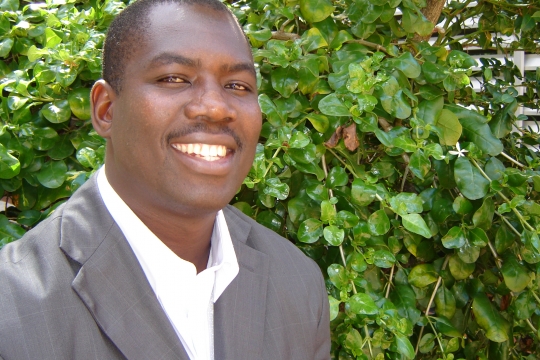EfD/EPRU has been distinguished one out of ten Social Responsiveness case profiles at the UCT campus level.
The Environmental Policy Research Unit is a relatively new addition to the UCT social responsiveness stable, set up in 2007 with donor funding. Its mission is to enhance environmental policy-making through the use of environmental and resource economics.
To capture the complexity and richness of different forms of social responsiveness, each year the Social Responsiveness UCT report focus distinguished a series of good practices. Link to the full Social Responsiveness Report - portraits of practice 2008A growing numbers of leading universities throughout the world have been embracing socially responsive academic engagement as a core element of their role in society. University of Cape Town (UCT) shares this belief that universities have a crucial role to play in addressing development challenges in the wider society and therefore releases since 2005 a Social Responsiveness Report. Social responsiveness is defined at UCT as the production and dissemination of knowledge for public benefit that demonstrates engagement with external constituencies and shows evidence of externally applied scholarly activities.
Environmental conservation and sustainable development work is not new to UCT. EPRU is distinctive in that it focuses on the economic dimensions of environmental issues.
“What differentiates us is more of the angle of our contribution to environmental policy. So, in our view, there has systematically been one missing angle in the way that people have been trying to address these problems, which is economics. That angle is critical and that is what we are trying to bring to all environmental issues. When you talk about climate change or air quality or sustainable development, you need to consider the economic impacts. That is the contribution we are trying to make”, says Dr Edwin Muchapondwa, EfD Research Fellow at EfD/EPRU.
Interviewed by Associate Professor Harro von Blotnitz, Edwin Muchapondwa also emphasised that since its establishment, EPRU has worked to a large extent in partnership with a number of organisations, governmental agencies. These include:
• The South African National Parks in the wildlife sector;
• The Department of Water Affairs and Forestry in the water sector;
• The Department of Environmental Affairs and Tourism on marine and coastal management
• The City of Cape Town in air quality management.
EPRU’s approach to partnerships is to ensure that mutual benefits accrue to all partners.The benefits that EPRU derives from coming up with solutions for these partnerships are threefold. Firstly, the partnerships create a demand for EPRU expertise, thereby enabling EPRU to sustain itself as a productive research unit. Secondly, the demands from these partnerships ensure that EPRU focuses on relevant research and thereby enhances the influence of EPRU in environmental policy-making. Thirdly, by establishing a reputation in these partnerships, EPRU creates a ready job market for its graduates.
EfD/EPRU has built strong relationships and partnerships with external stakeholders and more particularly governmental agencies such as for example the City of Cape Town in air quality management. Dr Edwin Muchapondwa explains how the unit’s academic skills in terms of environmental and resources economics was core strength in this partnership:
The second phase of the programme was to help decide what intervention to prioritize:
"As you can understand this dilemma from the realisation that each intervention is going to cost money. So when you have to choose an intervention, you want to choose that intervention which gives you the highest return for every unit of resource that you utilise. This is the phase that EPRU was asked to help with – to recommend which of all these recommended interventions had to be carried out and in what order.”
Link to the full Social Responsiveness Report - portraits of practice 2008
